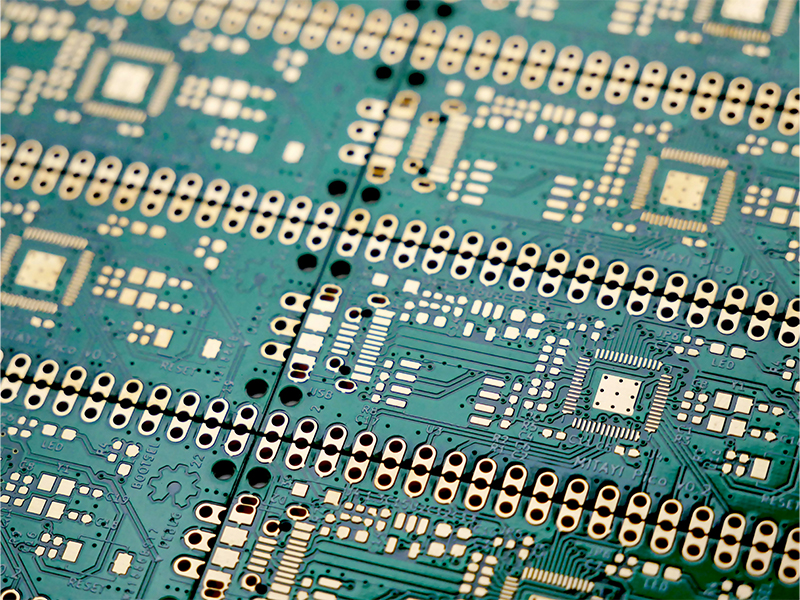
TPCA: Global carrier board output value this year is estimated to reach US$15.32 billion, an annual increase of 14.8%, with UNIMICRON taking the lead

Yahoo!News
July 11, 2024
Author: Juheng.com reporter Zhang Qinfa, Taipei
July 11, 2024
Author: Juheng.com reporter Zhang Qinfa, Taipei
According to TPCA citing research data from the Industrial Research Institute of Obstetrics, the global carrier board output value in 2023 will be approximately US$13.34 billion, a 26.7% decrease from 2022. However, driven by strong demand for AI in 2024, it will further drive the growth of high-end carrier boards. Recovery momentum. It is estimated that the global carrier board market will reach US$15.32 billion in 2024, an increase of 14.8% from 2023. At the same time, Taiwan is the largest supplier of carrier boards in the global market, accounting for approximately 32.8% of the overall output value. Among them, UNIMICRON (3037-TW) ranks among the top five suppliers.
The Taiwan Circuit Board Association (TPCA) cited statistics from the Institute of Obstetrics and Technology of the Industrial Research Institute that the global substrate output value in 2023 will be approximately US$13.34 billion, a decrease of 26.7% from US$18.2 billion in 2022 and 2022. Looking forward to 2024, although the global economy still faces many uncertainties and geopolitical risks remain, as the inventory adjustment of end products takes effect and the consumer market shows signs of recovery, it will help the global carrier board market to pick up. Especially driven by the strong demand for AI, it will further drive the recovery of high-end carrier boards. The global carrier board market is expected to reach US$15.32 billion in 2024, an increase of 14.8% from 2023.
TPCA pointed out that in the global market, Taiwan is the largest supplier of carrier boards, accounting for approximately 32.8% of the overall output value; followed by Japan (27.6%) and South Korea (27.0%). The top five carrier board manufacturers are Taiwan's UNIMICRON (3037-TW) (16.0%), South Korea's SEMCO (9.9%), Japan's Ibiden (9.3%), Austria's AT&S (9.1%) and Taiwan's Nandian ( 8046-TW) (8.7%), five carrier board factories account for more than half of global supply.
TPCA pointed out that IC carrier boards are divided into two categories: BT and ABF according to different substrate materials. In 2023, the overall demand for BT carrier boards will decline significantly due to the dual pressures of the decline of consumer electronics such as mobile phones and computers and the surge in memory inventories. The global BT carrier board output value in 2023 will be approximately US$6.18 billion, a decrease of 27.1%. According to Gartner's forecast, the memory market will recover strongly in 2024, with revenue expected to surge by 66.3%. As the memory market becomes active, the demand for related carrier boards will also be boosted. The global BT carrier board market is expected to grow by 16.5% in 2024, reaching US$7.2 billion.
In 2023, although AI servers are hot, ABF carrier boards will decline significantly due to the decline of the computer market and lower-than-expected demand for general servers. The global ABF carrier board output value in 2023 will be approximately US$7.16 billion, a decrease of 26.3%. With the increasing demand for AI computing power and the development of advanced packaging technologies, such as CoWoS + 2.5D packaging that closely integrates HBM and GPU, it will help promote the development of ABF carrier boards in the direction of large area, multi-layer count and thin lines. In addition, AI PC is also expected to drive a replacement wave and promote the recovery of the ABF carrier board market. The global ABF carrier board market is expected to grow 13.5% in 2024 to reach $8.12 billion.
Looking forward, TPCA pointed out that although Taiwan, Japan and South Korea account for nearly 90% of global carrier boards, China and the United States are catching up. Among them, mainland China will use the "new productivity" strategy to achieve technological self-sufficiency. In addition to continuing to provide subsidies to the semiconductor industry, it will also actively increase the degree of autonomy of basic equipment such as AI chips, servers, switches, and RF radio frequencies. With the support of government funds and huge domestic demand market, mainland China's carrier board industry does have the opportunity to break through existing limitations and expand its influence in the future global market.
On the other hand, the United States also continues to promote the localization of semiconductor supply chains. On November 20, 2023, the United States announced the National Advanced Packaging Manufacturing Plan (NAPMP), which will invest US$3 billion in advanced packaging pilot facilities, workforce training and project subsidies. Carrier boards are also included in this plan, which is sustainable Observe whether the carrier board will affect the layout of global carrier board factories in North America after it is regarded as a strategic material by the United States.
TPCA pointed out that emerging application demands are driving innovation in carrier board technology, such as servers, high-computing power AI chips and memory (HBM) being in short supply, and Intel announcing in 2023 its plan to achieve mass production of glass substrates by 2030, etc. Advanced packaging technology breaks through the limitations of traditional transistor density through horizontal or vertical integration of chips, opening up new possibilities for high-end applications such as HPC and AI. It is the key to the future development of the semiconductor and substrate industries.
【Disclaimer】
The content of this article only represents the author's personal views and has nothing to do with Creating.
The content, textual description and originality have not been confirmed by this site. This site does not make any guarantee or commitment for this article and all or part of its content, authenticity, completeness, and timeliness. It is for readers' reference only. Please verify the relevant content by yourself.
Creating Nano Technologies, Inc.
59 Alley 21 Lane 279, Chung Cheng Road, Yung Kang City, Tainan, TAIWAN
TEL:886-6-2323927 FAX:886-6-2013306 URL: http://www.creating-nanotech.com
